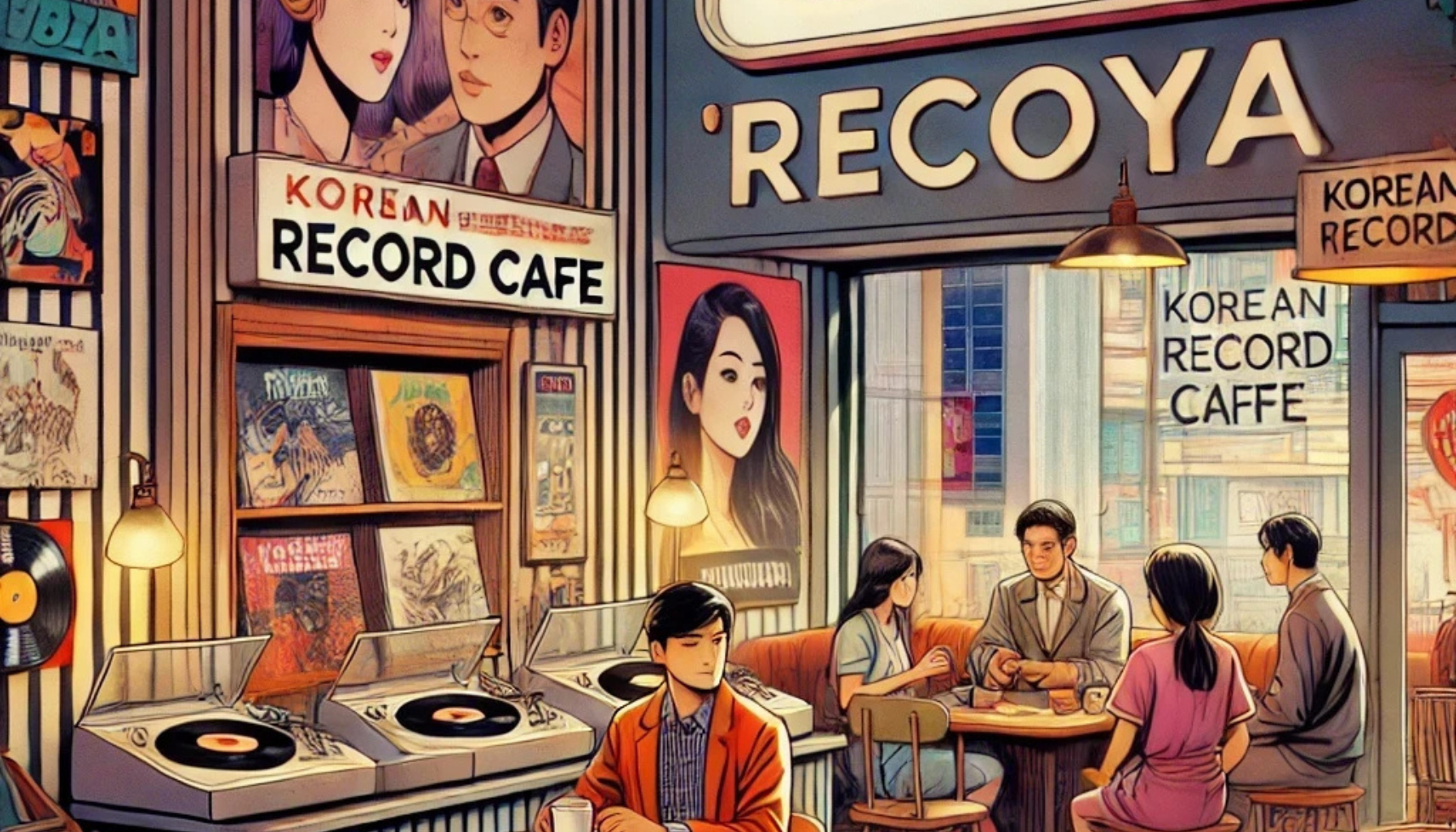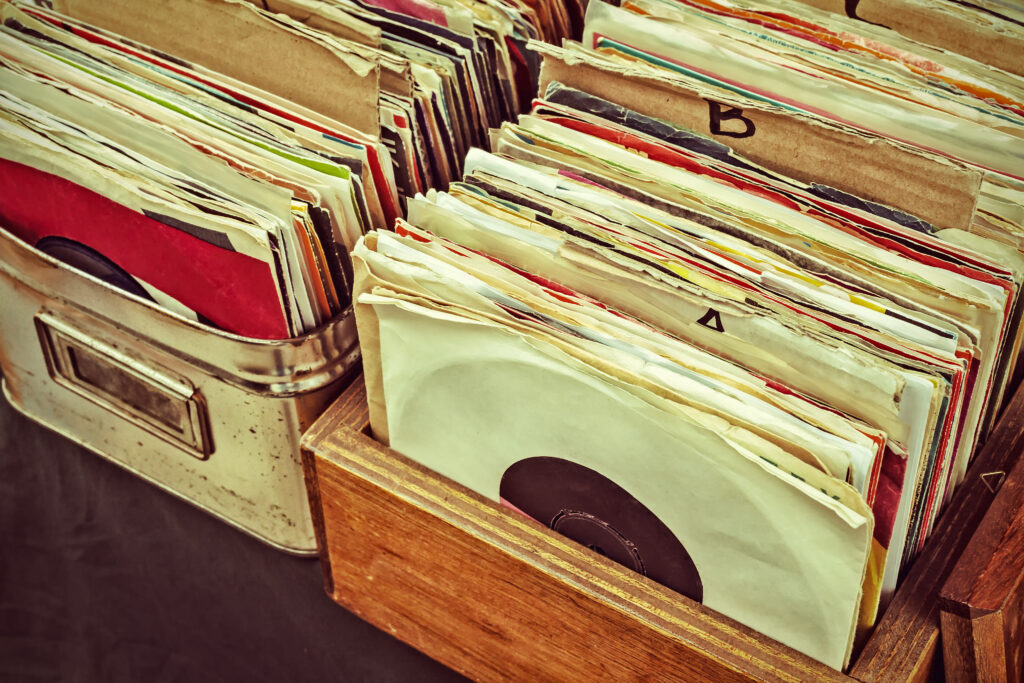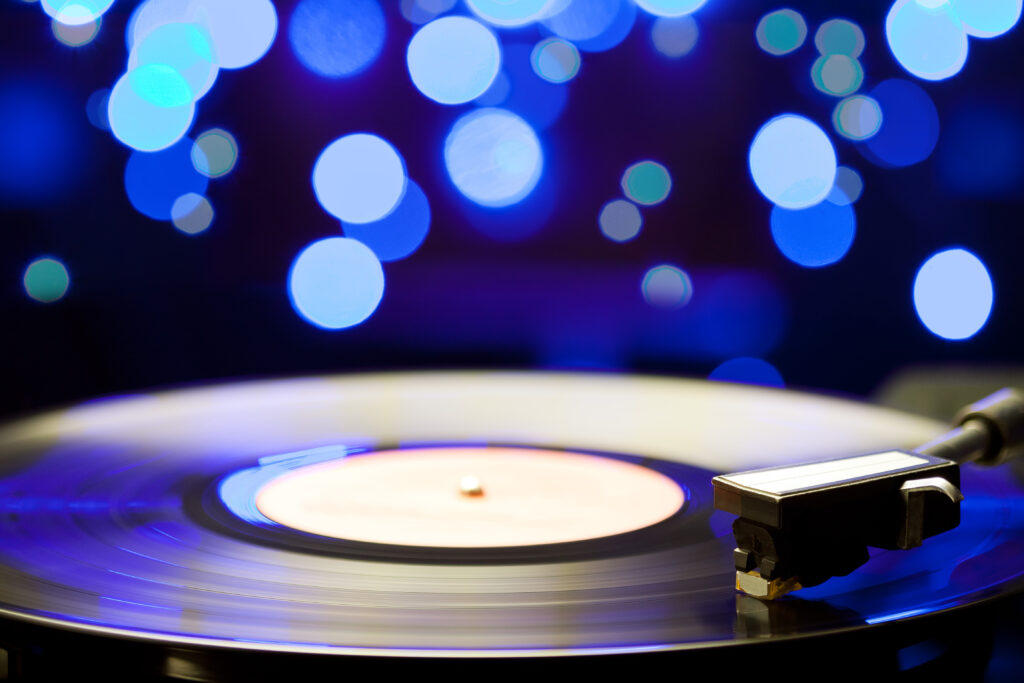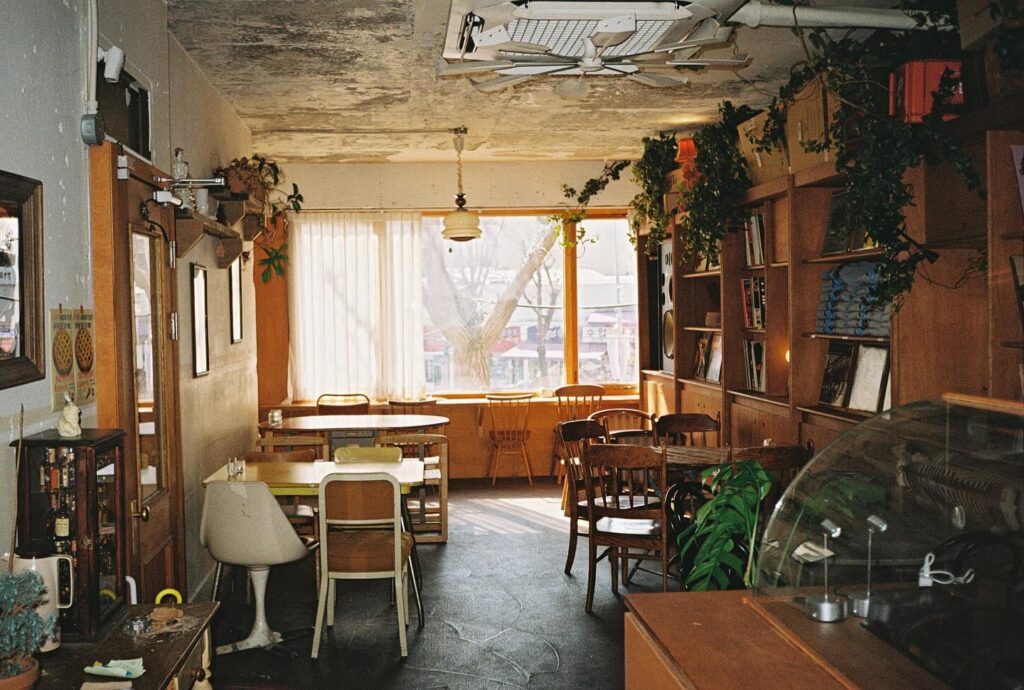Recently in Korea, a new type of cultural spot known as a “record café” has been gradually gaining attention.
Not long ago, I happened upon a post of a Korean record café on Instagram and became intrigued by its unique atmosphere.
View this post on Instagram
View this post on Instagram
View this post on Instagram
Why are record cafés booming in Korea right now? Let’s dig a little deeper into their background and appeal.
What is a Record Café? A Fusion of the Warmth of Analog and the Comfort of a Café
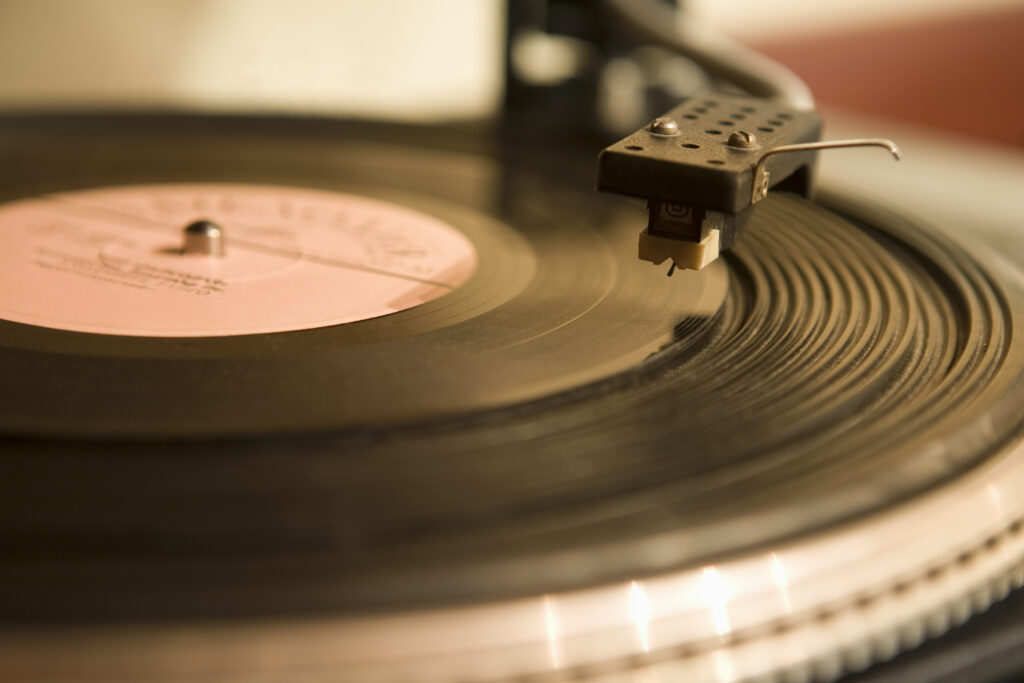
The Charm of Vinyl Sound
In an era where digital audio is mainstream, the unique charm of vinyl records stands out all the more. The sound produced by a needle tracing the grooves may at times include noise, making it imperfect. However, the depth and spatial feel of analog sound can move the listener’s heart. It’s as if you can sense the very atmosphere of the moment the music was recorded.
Perfect Match with a Café Atmosphere
This vinyl sound is a perfect match for a café environment. The sound of coffee brewing, pages turning, and gentle conversations. A café is filled with everyday sounds, but when vinyl music is added, a special ambiance is created. The warmth of analog enhances the café’s cozy feel.
The Experiential Value of a Record Café
In a record café, there’s more than just listening to music. There’s a special experience waiting for you. Selecting your favorite record and placing the needle on it—this analog ritual sets the stage for a special, heartwarming moment. As the record spins and the sound begins to fill the space, even the background music you usually take for granted becomes something you want to listen to more attentively.
In a record café, you can enjoy these comfortable moments, feeling as if time itself flows more slowly.
Tracing the Evolution of Korean Café Culture
How did record cafés come into being in Korea? Let’s explore the history of Korean café culture and uncover the background that led to the birth of record cafés.
The Origin of Korean Cafés: “Tabang”
Before café culture spread in Korea, there were “Tabang” (traditional Korean teahouses) where people enjoyed coffee. Their origins date back to the 1920s during the Japanese colonial period. From the 1930s to the 1960s, they served as salons for intellectuals and cultural figures to discuss literature and art. Holding coffee or tea in hand, people engaged in cultural exchange, making Tabang the starting point of today’s café culture.
The 1970s–80s: The Arrival of the Coffeehouse Boom
A full-fledged café culture blossomed from the late 1970s to the 1980s. Backed by rapid economic growth, numerous coffeehouses sprang up in urban areas. Cafés became not just places to eat and drink but hubs for students and intellectuals to gather and discuss politics and culture.
At a time when exposure to foreign culture was limited, coffeehouses also attracted people as spaces to experience a touch of the exotic.
Record Culture in Coffeehouses
In Korean coffeehouses of the 1970s and 80s, live performances were common—guitar singing, jazz sessions, and lively musical exchanges. Meanwhile, some coffeehouses offered spaces to enjoy vinyl records. Shops that stocked the latest Western rock and pop records became popular among young people. Since it was difficult to obtain records in Korea at that time, coffeehouses served as hubs for the latest music information.
1990s Onward: The Rise of Coffee Culture
By the 1990s, Korean café culture entered a new stage. Influenced by Western coffee culture, specialty coffee shops emerged, offering authentic espresso-based drinks and focusing on coffee bean origins and roasting techniques. As a result, cafés evolved from mere coffeehouses into more refined spaces.
The Re-Evaluation of Vinyl in Cafés
In the late 1990s, as café culture diversified, interest in vinyl rekindled. DJ events in cafés gained popularity, and carefully selected vinyl records became key elements shaping the café’s atmosphere for the day. In the 2000s, some cafés introduced professional audio equipment and focused on acoustics, creating environments where people could fully enjoy the subtle sounds of vinyl. This shift prompted a reevaluation of the value of analog records.
Why Record Cafés Are Popular
Why are record cafés attracting so much attention now? Let’s look into the reasons behind their popularity.
Because They Offer a Non-Ordinary Experience
People today crave a moment away from their busy lives, desiring a place to relax and slow down. Record cafés cater to this need. The analog experience of vinyl records transports visitors into a special world.
A Special Space Detached from Everyday Life
The moment you step into a record café, you enter another world. The unique ambience makes time itself seem to flow differently. The sound of records playing, the aroma of coffee, and vintage décor—all these elements remove you from daily noise and offer an extraordinary moment.
Analog Experiences that Stimulate the Senses
In our digital age, enjoying vinyl records offers a refreshing stimulus. Holding a record, admiring the jacket art, feeling the anticipation as you drop the needle—these analog thrills bring comfort and joy to our senses.
They Are Photogenic and “Insta-Worthy”
With the widespread use of social media, people are increasingly interested in “instagrammable” spots. Record cafés attract attention as photogenic spaces.
Retro, Stylish Interiors and Rows of Records
Record cafés often exude a retro atmosphere, featuring vintage furniture, posters, and rows of record jackets. These elements are photogenic, making you want to snap pictures. As a result, they have grown in popularity, especially among younger generations who value visually appealing spaces.
Visually Appealing Food and Drinks
Menus at record cafés also incorporate visual flair. Latte art, desserts styled to resemble records—these beverages and dishes are carefully crafted to match the café’s vibe and ensure stunning social media photos.
They Let You Discover New Ways to Enjoy Music
At a record café, you may find a new appreciation for music. Even the songs you casually stream daily can feel new when listened to on vinyl, allowing you to rediscover their charm.
The Fun of Choosing Records and the Listening Experience
Record cafés let you choose records by hand. Perhaps you pick one based on its cover, or test it out at an in-store listening station. This pleasure of selecting records—a feeling unattainable through digital platforms—is a major appeal. (Note: Some cafés may not allow customers to select or listen individually.)
A Wide Range of Genres Handpicked by the Owner
One of the attractions of a record café is the owner’s curated selection. From famous artists to obscure, niche finds, you can enjoy a wide range of music. The owner’s sense and curation make each visit a chance to encounter new sounds.
Popular Record Cafés in Seoul (Korea)
Below are some representative record cafés in Seoul that are currently popular. Experience these special spaces if you love music.
Music Complex Seoul
Located in Insadong, this is one of the largest cafés in Korea. On the 5th floor of the “Annyeong Insadong” building, it houses over 20,000 LP records. Each table is equipped with a record player and headphones, and there are a variety of seating options including window-side seats and sofa seats.
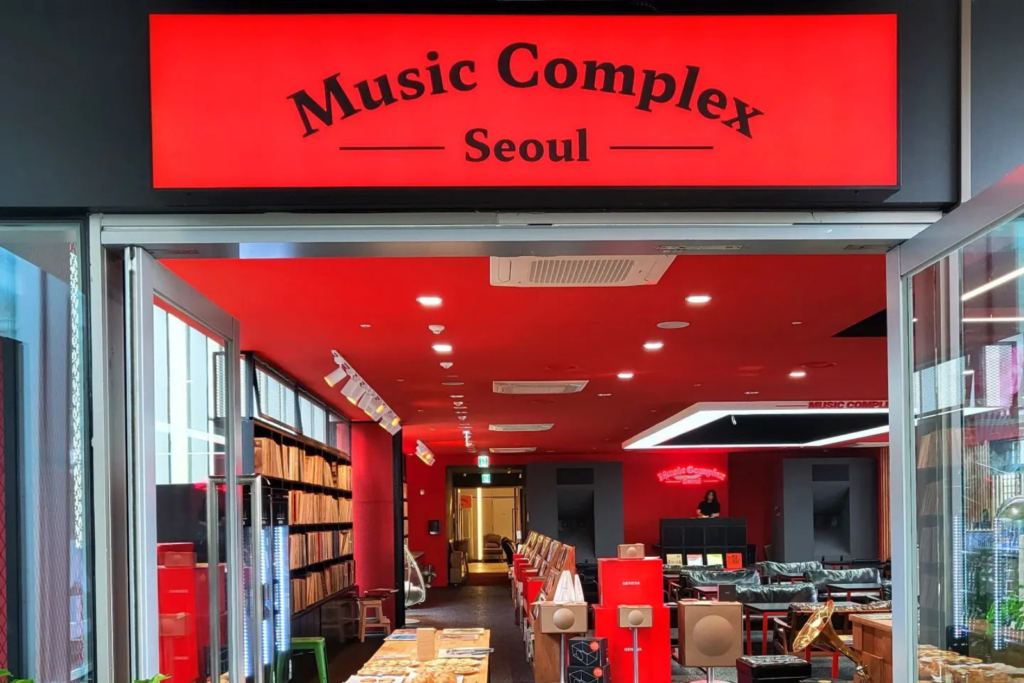
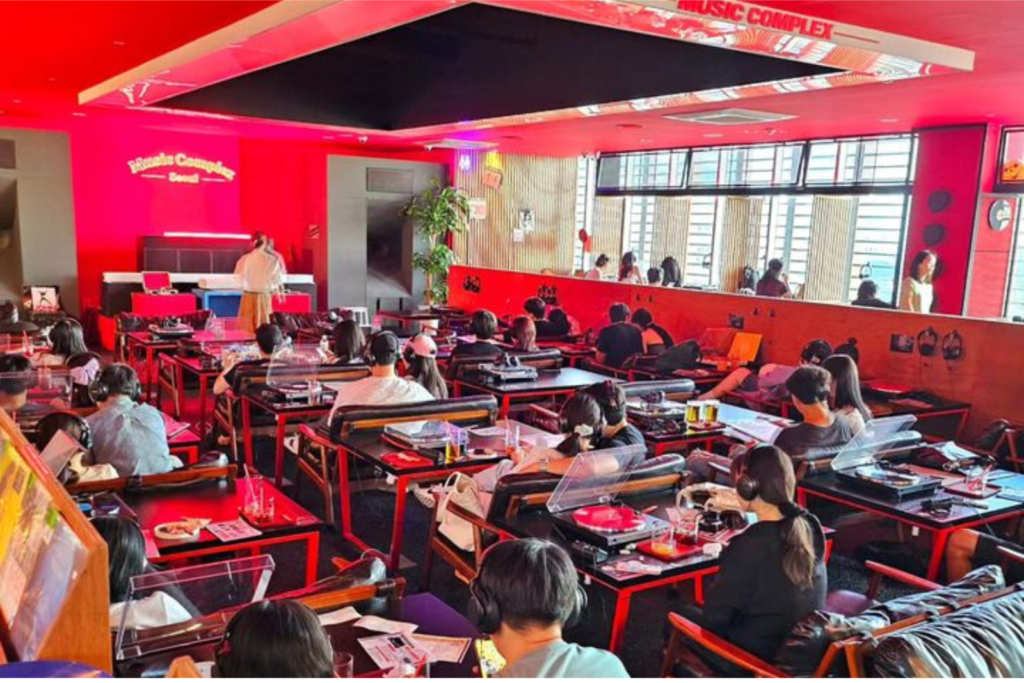
Vinyl Seongsu
Located in Seongsu-dong, this trending LP café has a turntable and headphones at each table. Visitors can choose from over 1,000 records of various genres and enjoy a personal music experience. They have couple seating, solo seating, and offer light snacks like madeleines. The admission includes a drink, no time limit, and you can spend as long as you like.
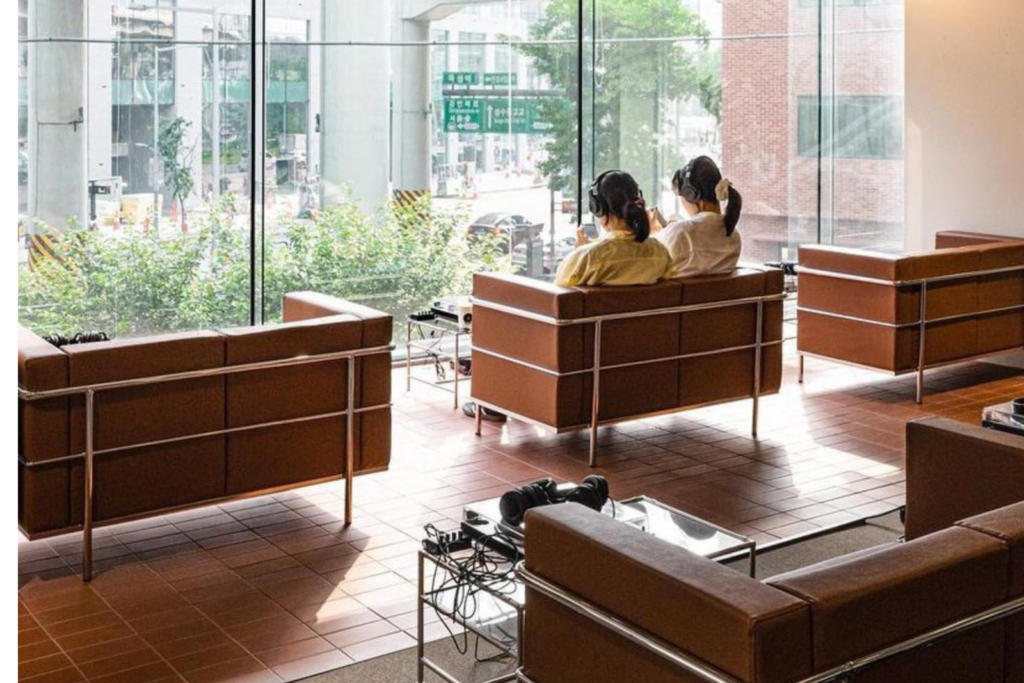
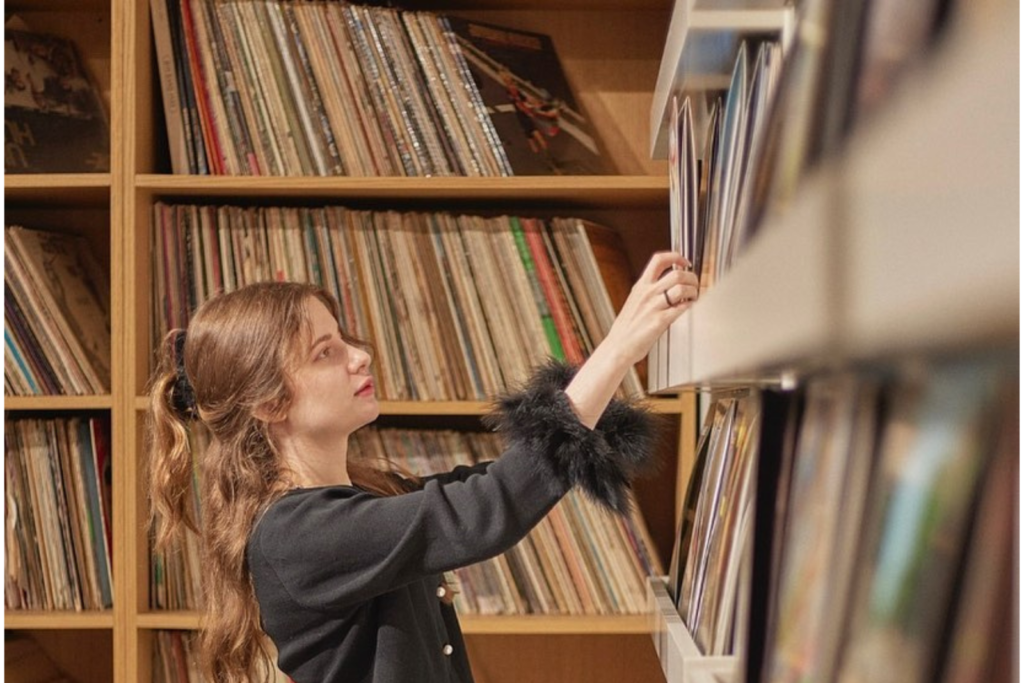
oob
Located near Namyeong Station in Seoul, this record café & bar recreates a 1970s American atmosphere. With about 1,000 records in its collection, two record players play music from the 1960s to the 2000s, focusing on jazz and blues.
The interior features vintage furniture and speakers, and large windows offer a panoramic view of Namyeong’s streets. By day, it operates as a café, and by night, it transforms into a bar serving wine and cocktails.
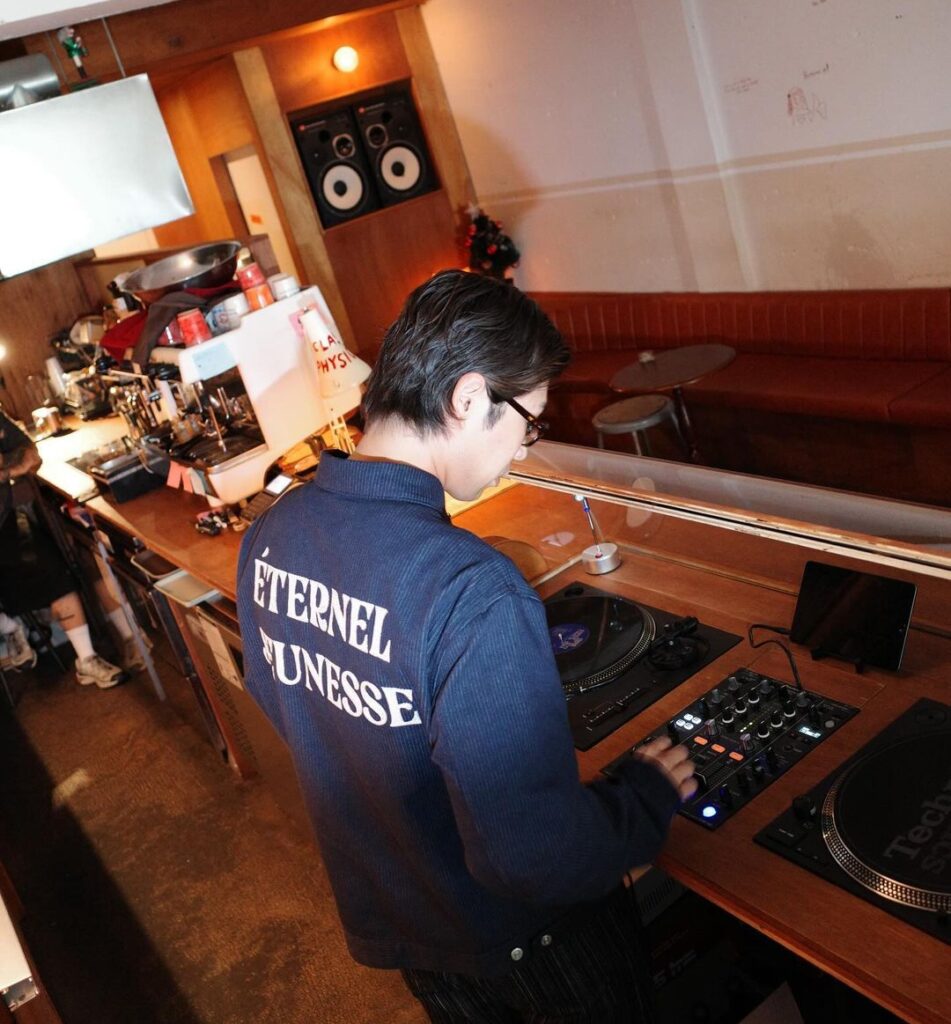
These cafés are popular spots where you can spend leisurely time enjoying records. They are highly recommended for music lovers.
In recent years, with the rise of social media, there’s growing interest in places that “look good.” Record cafés have attracted attention as photogenic spaces. The retro interiors and lined-up records are particularly appealing to young people.
Summary
Record cafés, currently booming in Korea, are special spaces that merge the warm sound of analog records with the comfort of a café. The distinctive atmosphere created by the deep resonance of records, vintage décor, and carefully chosen coffee provides a moment removed from daily life.
Born amid the evolution of Korean café culture, record cafés offer non-ordinary experiences, stimulate the senses, and provide photogenic spaces that win support from many people.
Taking a record in hand and slowly savoring the music is a form of comfort we may have forgotten in our digital age. On your next trip to Korea, be sure to experience the warmth of analog at a record café.

